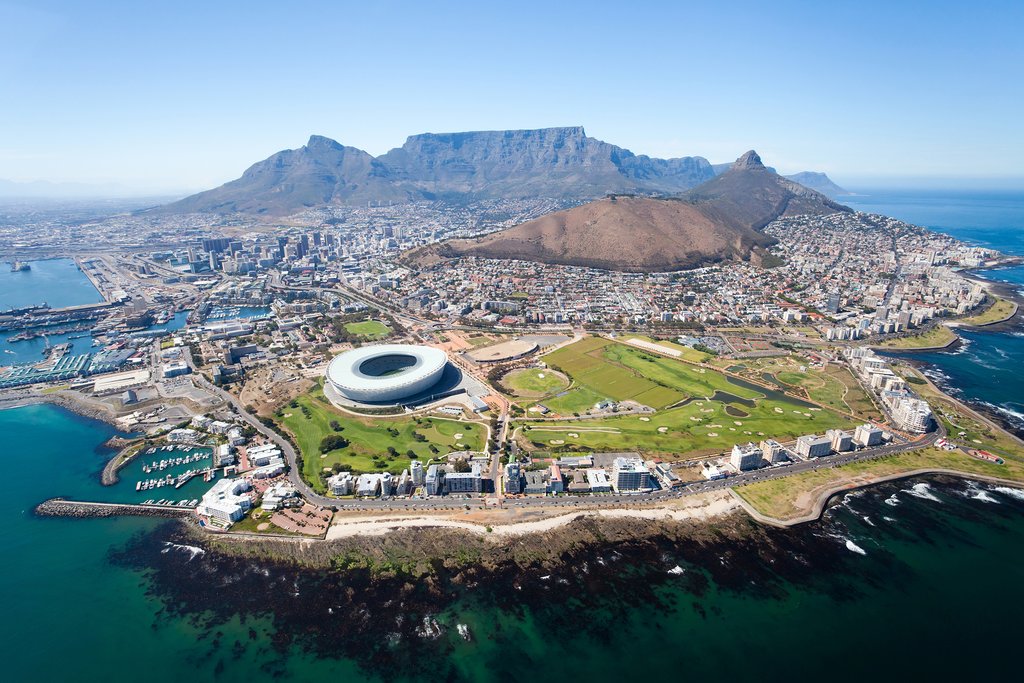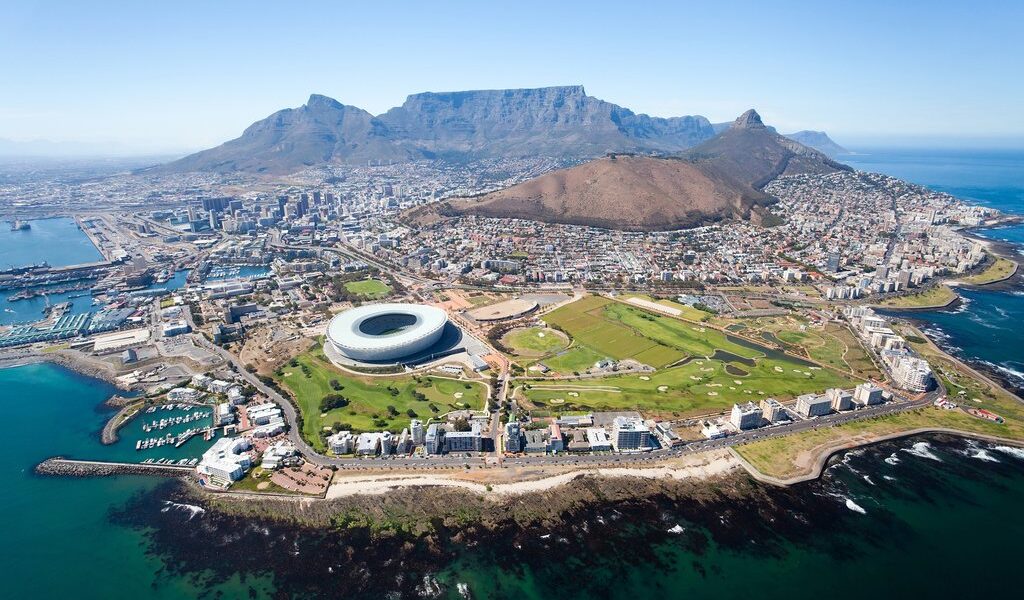
Planning your trip to Cape Town requires flipping your mental calendar, as the southern hemisphere’s seasons are a reverse of the northern hemisphere. South Africa’s hot, dry, and popular summer (December-February) corresponds to North America’s winter, and vice versa. However, you should also factor in when best to avoid the crowds and find the most reasonable rates. Depending on how you weigh these factors, the following information will help you decide which season is right for you.
## Seasonal Planning for Cape Town Travel: An Extended Guide
Cape Town, a jewel nestled at the tip of Africa, boasts a wonderfully temperate Mediterranean climate, characterized by warm, dry summers that beckon travelers from afar and cool, rejuvenating, rainy winters that nourish the landscape. It’s important to remember that South Africa resides in the southern hemisphere. This geographical distinction means that its seasons are inverted relative to those of Europe and North America. Therefore, when New York finds itself blanketed in a serene coat of snow, Cape Town basks under the warm, inviting glow of the sun. Conversely, when New York experiences its sweltering summer temperatures, the majestic Table Mountain near Cape Town might even witness a delicate sprinkling of snow upon its peak.
The most sought-after months for a Cape Town holiday generally fall within the mid-summer period, specifically from December through February. During these months, temperatures reach their highest levels, creating perfect conditions for enjoying the city’s famed beaches and outdoor activities. However, it is also during this time that Cape Town’s infamous southeasterly wind, affectionately nicknamed the “Cape Doctor” for its supposed cleansing effect, blows with considerable force, sometimes impacting outdoor plans. Considering all factors, the shoulder-season months of spring and autumn often provide the best overall experience for visitors. These periods offer a delightful combination of pleasant weather, relatively uncrowded beaches and tourist sites, and the added benefit of lower prices, making them exceptionally attractive for budget-conscious travelers.
### Winter in Cape Town (June to August): An Underrated Charm
Many travelers tend to shy away from the Mother City during the winter months, specifically from June to August. This is because these months represent Cape Town’s coolest and rainiest period, where frequent downpours have the potential to disrupt planned tourist activities. However, dismissing Cape Town during the winter would be a mistake. Even during these months, the city experiences mild daytime temperatures, averaging in the low 60s Fahrenheit. Furthermore, the rains are often confined to sporadic showers, leaving plenty of opportunities for exploring the city and its surroundings.
Winter is also a particularly appealing time for food enthusiasts. The city’s vibrant indoor markets come alive with activity, offering a diverse array of culinary delights. The nearby Cape Winelands wineries provide a cozy escape, inviting visitors to sample award-winning wines amidst the picturesque vineyard landscapes. In addition, Cape Town boasts a remarkable collection of world-class restaurants, many of which feature inviting fireplaces and offer excellent winter specials, making for a truly memorable dining experience.
The winter season also coincides with the whale-watching season. During this time, majestic migratory whales grace the coast east of Cape Town, providing a breathtaking spectacle for nature lovers. Moreover, the increased rainfall transforms the surrounding countryside into a lush, vibrant paradise, creating a stunning backdrop for scenic drives and hikes.
**Weather:**
* Temperatures: 52°F–72°F (11°C–22°C)
* Rainfall: 9–10 days per month on average
* Hours of daylight: 10
**Crowds:**
During the winter months, Cape Town experiences a significant decrease in tourist numbers. Hotel occupancy rates and room prices reach their lowest points in June and July, making this the ideal time for budget-conscious travelers to visit. By taking advantage of special offers on lodging, restaurants, and other venues, visitors can save substantial amounts of money.
### Spring in Cape Town (September to October): A Season of Rebirth
Spring, encompassing the months of September and October, is widely considered one of the two best times of year to visit Cape Town. The other being autumn, of course. This is because spring offers a harmonious blend of favorable weather conditions, affordable shoulder-season prices, and the absence of overwhelming summer crowds.
As the season progresses, temperatures gradually rise, with daytime highs typically hovering in the mid-70s Fahrenheit. While some days, particularly in September, may still be somewhat cool, the number of rainy days decreases significantly, paving the way for clear blue skies and abundant sunshine. The landscape undergoes a remarkable transformation during this time, bursting into a kaleidoscope of colorful blossoms that paint the region in vibrant hues.
Spring is the perfect season for outdoor enthusiasts. The moderate temperatures make it ideal for hiking atop the iconic Table Mountain, providing breathtaking panoramic views of the city and coastline. Alternatively, visitors can venture northwest to witness the spectacular coastal blooms, a truly unforgettable sight.
**Weather:**
* Temperatures: 63°F–84°F (17°C–29°C)
* Rainfall: 5–8 days per month on average
* Hours of daylight: 12–13
**Crowds:**
While the weather is undeniably pleasant during spring, the influx of summer visitors has not yet commenced, ensuring a more relaxed and intimate experience at top venues. Although hotel rates begin to increase in October in anticipation of the summer high season, it is still relatively easy to find excellent deals, especially if you book your accommodations a few months in advance.
### Summer in Cape Town (November to February): Sun-Drenched Paradise
The high season in Cape Town begins in November, attracting travelers from all corners of the globe who are eager to experience the city’s sprawling sun-drenched sands and enjoy satisfyingly warm, cloudless, and rain-free days. If a beach holiday is on your agenda, there is no better season than summer for basking in the sun and swimming in the ocean. However, it is important to note that the waters surrounding Cape Town can be quite chilly, even during the summer months.
Be prepared to share the beaches with numerous other visitors, as summer is a popular time for both international and domestic tourists. Summer temperatures typically reach daytime highs in the mid-to-high 70s Fahrenheit, but some days can soar into the high 80s. The fierce southeasterly winds, affectionately known as the “Cape Doctor,” frequently lash Cape Town during the summer months, although they tend to subside somewhat during February.
These strong winds make summer the prime season for kitesurfing, a popular activity that is particularly prevalent at the world-renowned Blouberg Beach. However, outdoor enthusiasts may be disappointed to find Table Mountain enveloped in thick clouds on occasion due to the winds.
**Weather:**
* Temperatures: 63°F–84°F (17°C–29°C)
* Rainfall: 3 days per month on average
* Hours of daylight: 13-14
**Crowds:**
December and January represent the peak months for both international and domestic visitors, coinciding with the local school holidays. As a result, hotels are often fully booked, and reservations must be made several months in advance, especially during the Christmas and New Year’s periods. Expect to pay premium prices for everything, as bargains are scarce during this time. However, the situation begins to improve in February as visitors start to depart. This translates to more space on the popular beaches, and prices begin to decline, along with the intensity of the “Cape Doctor” wind.
### Fall in Cape Town (March to May): A Season of Golden Hues
Autumn, spanning the months of March to May, is regarded by many travelers as another “just right” season. The high summer temperatures gradually decrease, with average highs typically falling in the delightful low- to mid-70s Fahrenheit. However, it is important to be prepared for some days to be quite cool, especially in May, when a warm jacket is recommended.
Days are generally characterized by crystal-clear skies throughout April, with the first rains hinting at the imminent arrival of winter. By May, it is advisable to pack a rainproof jacket as a precautionary measure. Autumn is widely considered an excellent time for hiking, offering pleasant temperatures and stunning scenery.
For wine enthusiasts, there is no better time to visit the Cape Winelands than during autumn. The vineyards are ablaze with fall color, creating a breathtaking spectacle. The annual wine harvest is underway, and some wineries even welcome visitors to participate in the grape-gathering process, providing a unique and memorable experience.
**Weather:**
* Temperatures: 59°F–80°F (5°C–27°C)
* Rainfall: 2–4 days per month on average
* Hours of daylight: 11–13
**Crowds:**
The autumn shoulder season offers a remarkable trifecta of advantages: pleasant weather, relatively few travelers, and lower prices. This combination makes it an exceptionally appealing time to visit Cape Town.
## Events and Festivals in Cape Town: A Year-Round Celebration
Cape Town is a city that pulsates with energy and vibrancy throughout the year. This energy is particularly evident in its diverse array of festivals and events, which showcase the city’s rich cultural heritage, artistic talent, and love for celebration. Consider planning your trip around one of these events to enhance your Cape Town experience.
### January 1-2 – Cape Town Minstrel Carnival: A Riot of Color and Sound
To commence the New Year, the city erupts in a symphony of song and dance with the spirited Cape Town Minstrel Carnival, also known as Kaapse Klopse. More than 10,000 costumed musicians and dancers, armed with banjos, parade through the streets in flamboyant minstrel costumes and with their faces painted white. This extravagant pageant traces its origins back to the early years of colonization when slaves were granted a single day of freedom to celebrate alongside the colonists.
### Mid-January – Cape Town Jazzathon: A Melodic Oasis
The V&A Waterfront transforms into a haven for jazz aficionados during this free four-day festival. The Cape Town Jazzathon features an impressive lineup of top contemporary South African performers, filling the air with cool riffs and infectious rhythms.
### Mid-February – Cape Town Electronic Music Festival: A Sonic Explosion
Cape Town pulsates with electrifying energy as it hosts the Cape Town Electronic Music Festival, a showcase of South Africa’s burgeoning and bold electronica music scene. The festival encompasses a wide spectrum of electronic music styles, ranging from jazz-infused creations and high-energy dance floor anthems to ethereal live sets and captivating performances.
### Late February – Stellenbosch Wine Festival: A Toast to the Vine
The annual three-day, family-friendly Stellenbosch Wine Festival draws thousands of wine enthusiasts to the Coetzenburg Sports Grounds. Adults can indulge in sampling hundreds of award-winning local wines. Furthermore, the festival offers a delectable selection of local cuisine, along with entertainment for all ages, including live music from popular South African artists.
### Late February – Constantia Fresh Food and Wine Festival: A Gourmet Affair
This established festival has evolved into one of South Africa’s most prestigious wine events. Renowned chefs prepare gourmet dishes to complement the exquisite wines offered by numerous local and international wineries. Craft beers and live music are also part of the experience. The Constantia Fresh Food and Wine Festival is hosted at Buitenverwachting Wine Farm, nestled in the heart of Constantia, South Africa’s oldest wine region.
### Late February – Design Indaba: A Creative Convergence
This convention of creativity, spanning architecture to visual art, takes place at the Artscape Theatre or Cape Town International Convention Centre. The Design Indaba showcases a diverse range of design arts, including fashion and media, by the nation’s leading talent. It also features free film screenings and live entertainment.
### Mid-March – Cape Town Carnival: A Kaleidoscopic Spectacle
An extravagant and exuberant celebration that rivals Rio’s, the Cape Town Carnival presents the Rainbow Nation’s unique interpretation of carnival with more than 2,000 costumed performers, musicians, and mobile floats. More than 50,000 revelers fill Green Point’s famous Fan Walk to witness the parade, followed by a lively party featuring some of South Africa’s hottest musical talent.
### Late March / Early April – Cape Town International Jazz Festival: A Global Rhythmic Gathering
Now in its third decade, the city’s celebrated annual Cape Town International Jazz Festival stands as the largest music event in sub-Saharan Africa and one of the world’s premier jazz festivals. A star-studded cast of local and international artists performs at the Cape Town International Convention Centre (CTICC) at the foot of Table Mountain. Securing a ticket can be challenging, as they tend to sell out almost instantly. A free concert is also held in Green Market Square, located in the downtown area.
### Early April – Stellenbosch Wine Festival Cape Town: An Urban Wine Escape
Launched in 2019 as an offshoot of the long-running Stellenbosch Wine Festival, this two-day event at the V&A Waterfront features live music, a delectable array of food ranging from fish ‘n’ chips to gourmet charcuterie platters, and wine tastings offered by numerous top Cape Winelands estates.
### Late July – Cape Town Fashion Week: Strutting Style on the Runway
Held at the V&A Waterfront, this three-day event provides a platform for African designers and top models to showcase their talents and shape the latest trends. It also encompasses Xperience AFI—a showcase of urban culture, art, music, and creative photography.
### Early August – Stellenbosch Fine Wine and Food Festival: A Culinary Paradise
Considered to be South Africa’s premier wine and food festival, this ultimate culinary showcase is hosted by Stellenbosch Wine Routes to promote talented winemakers and top chefs. The nation’s gourmet capital transforms into a gathering place for food and wine enthusiasts to savor wines crafted from grapes grown exclusively in the Stellenbosch region.
### Late September – Hermanus Whale Festival: A Celebration of Marine Giants
This annual festival celebrates the return of the southern right whales to the coastal waters of Southern Africa with a diverse range of events, activities, and entertainment designed to raise awareness about the importance of protecting whales and marine wildlife. The Hermanus Whale Festival takes place in Hermanus, a scenic 90-minute drive east of Cape Town.
### Mid-October – Stellenbosch Craft Beer Festival: A Brew Lover’s Haven
Beer enthusiasts pack their picnic blankets and venture out of Cape Town to the Cape Winelands to sample craft brews at this bi-annual event held at the Jan Marais Nature Reserve. The festival features a fully-equipped kiddies’ area with a variety of activities for children.
### Late October – Cape Town International Kite Festival: Soaring Colors for a Cause
Hundreds of colorful and creatively designed kites from around the globe fill the sky above Zandvlei, near Muizenberg, to raise awareness about mental illness and generate funds for the Cape Mental Health Society. The festival includes kite contests, workshops, and various forms of entertainment.
### Late October – Cape Town Diwali Festival: A Celebration of Indian Culture
The spectacular and vibrant Cape Town Diwali Festival, organized by the Hindu community, features captivating dance performances, fashion shows, and music. The event culminates in a signature fireworks display to conclude the evening, all aimed at showcasing the splendor of Indian culture.
### Late October – Franschhoek Art Festival: An Artistic Retreat
Cape Town’s bohemians flock to Cape Winelands for a weekend immersed in art. They admire artworks and explore exhibitions at Franschhoek’s numerous art galleries and studios, as well as the many wine estates in the area.
### December – Observatory Festival of Arts: A Multicultural Tapestry
This three-day festival offers a multicultural platform for South African artists and musicians to display their creativity at open studios throughout the city and at a large festival market that includes a dedicated kids’ zone.
### Mid-December – MCQP (Mother City Queer Project): A Carnival of Self-Expression
Africa’s largest bisexual, gay, lesbian, transgender, and queer party sashays into Cape Town Stadium as attendees dress up in extravagant fancy dress for a spectacular carnival.
## Conclusion: What is the Best Time to Visit Cape Town? A Personalized Choice
Selecting the optimal time to visit Cape Town is contingent upon various factors, including your tolerance for sun and/or rain, your preference for indoor or outdoor activities, your ability to cope with crowds, and your budgetary considerations.
If your primary desire is to explore the outdoors and immerse yourself in Cape Town’s breathtaking natural beauty, then South Africa’s spring and autumn months are undoubtedly the best choices. If your budget is a significant concern or if you prefer to avoid the bustling crowds of the most popular months, consider visiting Cape Town during its winter months. Just remember to pack warm clothing and rain gear. However, if your heart is set on a beach vacation, then follow the sunshine and embrace the summer season. Ultimately, the best time to visit Cape Town is the time that aligns best with your personal preferences and priorities.
B-2290

